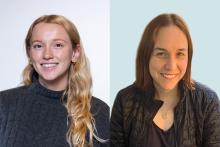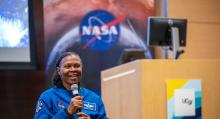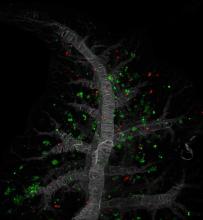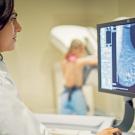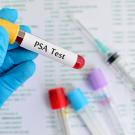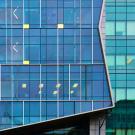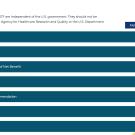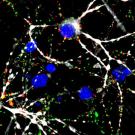News
How a UCSF Scientist Balances Elite Trail Running, Cancer Research
From cutting-edge cancer research to elite trail running, UCSF’s Patrick “Paddy” O’Leary, PhD, rises to the challenges of a well-balanced life. The native of Wexford, Ireland is a senior research specialist in the laboratory of Alan Ashworth, PhD, president of the UCSF Helen Diller Family
Breast Density and BMI Both Play a Role in Breast Cancer Risk
Laws in many states require notifying women if they have dense breasts, a risk factor for breast cancer. But density shouldn’t be the only factor in determining whether supplemental screening is warranted, reported researchers in a large new study led by UC San Francisco and UC Davis. Body mass
Personalizing Prostate Cancer Screening May Improve Accuracy of Detection
The accuracy of prostate-specific antigen (PSA) screening can be improved by accounting for genetic factors that cause changes in PSA levels that are not associated with cancer, according to a multi-center study led by UC San Francisco and Stanford University. In a study published on June 1, 2023 in
UCSF Health Cancer Services Earns National Accreditation from the Commission on Cancer of the American College of Surgeons
The Commission on Cancer (CoC), a quality program of the American College of Surgeons (ACS) has granted three-year accreditation to the Helen Diller Family Comprehensive Cancer Center (HDFCCC) at UC San Francisco (UCSF). To earn voluntary CoC accreditation, a cancer program must meet 34 CoC quality
USPSTF’s Proposed Breast Cancer Screening Guidelines
USPSTF’s Proposed Breast Cancer Screening Guidelines prompt comments from UCSF Breast Imaging faculty Bonnie Joe, MD, PhD, and Kimberly Ray, MD On May 9, the U.S. Preventive Services Task Force (USPSTF) proposed a significant change to current breast cancer screening guidelines. The USPSTF’s draft
ASCO and Memorial Sloan Kettering Honor Ashworth for Transformative Contributions
Alan Ashworth, PhD, FRS, president of the UCSF Helen Diller Family Comprehensive Cancer Center and senior vice president for cancer services at UCSF Health, has received two prestigious national awards for his transformative research accomplishments and work developing PARP inhibitors for cancer
Scientists Discover a Deadly Brain Cancer’s Hidden Weakness
The difficult-to-treat brain cancer glioblastoma steals a person’s mental faculties as it spreads, yet the tumor’s insidious ability to infiltrate neighboring networks in the brain could also prove its undoing. Scientists at UC San Francisco have discovered that neural activity in these deadly
